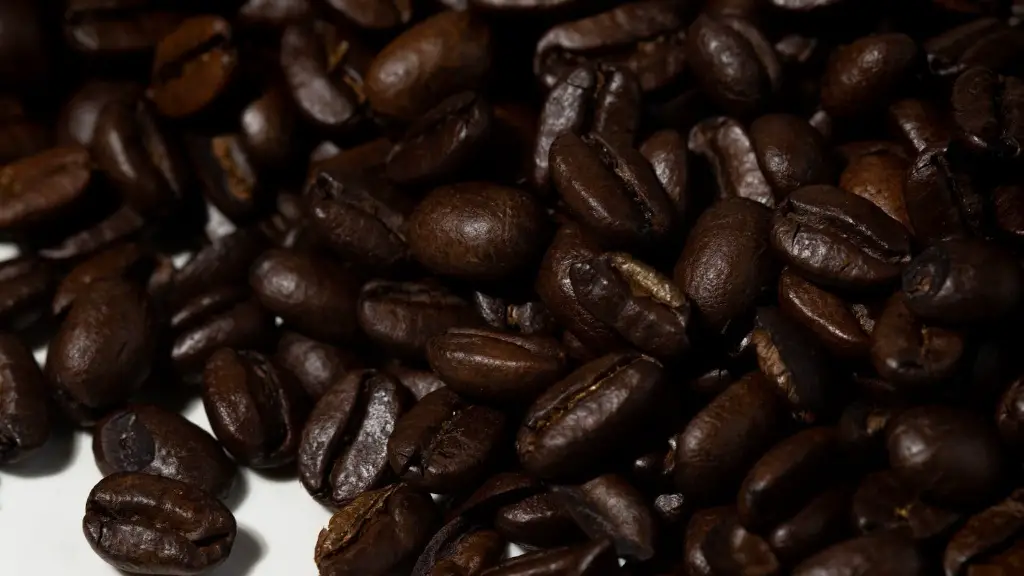Does Drinking Coffee While Breastfeeding Keep Baby Awake
Breastfeeding can be challenging for new moms and dads, especially when it comes to the temptation to consume coffee or other caffeinated beverages. Caffeine has a stimulating effect on the body and can interfere with baby’s sleep. So, does drinking coffee while breastfeeding keep baby awake?
Health professionals suggest that while breastfeeding, only safe beverages should be consumed. The American Academy of Pediatrics recommends that breastfeeding mothers limit their caffeine consumption to fewer than 300 milligrams a day. This amount is equivalent to 2-3 cups of coffee, or 2 liters of caffeinated soda.
Caffeine consumption affects newborns much more significantly than it affects adults because their body can’t metabolize caffeine easily yet. The half-life for a newborn may be as high as 27 hours… over three times longer than for adults. Therefore, caffeine intake from any source, including coffee, should be limited.
Most pregnant and breastfeeding women understand the importance of caffeine avoidance. However, there isn’t much evidence of its effect on babies, who are exclusively breastfed. One study conducted at the University of Rijeka in Croatia showed that infants who are exclusively breastfed who consume caffeine-containing cola drinks have increased insomnia, reduced sleeping and increased nighttime crying, compared to babies who do not drink caffeinated beverages.
Additionally, in April 2017, a study was reported in the International Journal of Obsterics and Gynecology, stating that over 20% of midwives believe that caffeine consumption may be associated with sleep disturbances, including irregular sleeping and crying in breastfed babies. However, no scientific evidence is provided and more research is needed.
In conclusion, it is best for a breastfeeding woman to reduce her caffeine consumption to fewer than 300 milligrams per day if possible, using coffee-free alternatives if need be. If a breastfeeding mother does decide to consume coffee, she can help her baby better regulate his or her sleep by drinking coffee earlier in the day and limiting coffee-related beverages to 1-2 cups a day.
Effects of Other Caffeinated Beverages
In addition to coffee, there are other sources of caffeine that could interfere with a mothers’ breastfeeding abilities. Sodas and energy drinks, for example, contain high amounts of caffeine and should be avoided. The American Academy of Pediatrics suggests that a breastfeeding mother should limit her caffeine intake to the typical amount that is found in one 8-ounce cup of coffee per day. This amount of caffeine is unlikely to affect a baby.
Another source of caffeine to be aware of is herbal tea. While these teas may contain natural sources of caffeine, such as green tea or guarana, they can also contain artificial sources of caffeine, such as black tea and yerba mate. There is not enough research to suggest how much caffeine is safe for a breastfeeding mom to consume, so it is best to limit the intake of these beverages.
Another source of caffeine that has become more popular in recent years is chocolate. Darker chocolates can contain large amounts of caffeine, so breastfeeding mothers should limit their intake. Fortunately, there are many decaffeinated chocolates available that allow moms to still enjoy the indulgent treat, while still following health guidelines.
In short, most caffeinated beverages should be avoided while breastfeeding. If a mom prefers to consume caffeine, it is best to limit it to one 8-ounce cup of coffee per day and consume it early in the day. Additionally, she should avoid chocolate and herbal teas containing caffeine.
Other Considerations
It is important to note that caffeine does not only affect breastfeeding babies through the mother’s milk. Babies can also be sensitive to caffeine if consumed by the mother directly, such as through energy drinks. While energy drinks may provide a temporary burst of energy, the high amounts of caffeine can disrupt the baby’s sleep and cause them to become more fussy and awake.
It is also important to note that a baby’s sleep can be affected by activities other than caffeine as well. Eating habits and general mood can both contribute to sleep disturbances. For this reason, it is important for a breastfeeding mother to assess the overall state of their home and try to create a peaceful environment for their baby.
Not all caffeine-containing foods or drinks are bad. While some are better to be avoided while breastfeeding, some can still be consumed in moderation with little to no effect on the baby. Decaffeinated coffee and tea, for example, have no stimulant effects on babies, and may still provide health benefits to the breastfeeding mother. In addition, chocolate can also be consumed in moderation, as long as it is not, dark chocolate, which can contain higher amounts of caffeine.
Caffeine and Weight Loss
Caffeine may also be beneficial to some breastfeeding moms. Caffeine has been linked to increased “fat oxidation”, which is the science-y way of saying that it helps the body burn fat for energy. This can be beneficial for moms who are trying to lose the baby weight, and caffeine can also provide an energy boost for those who are feeling fatigued.
However, consuming caffeine for weight loss can be counter- productive if taken in excess. Drinking more than three cups of coffee a day has been linked with decreased milk production, which could affect the baby’s health. Therefore, it is best to stick to the recommended amount of caffeine while breastfeeding – one 8-ounce cup per day.
It is also important to remember that caffeine will not magically make the baby weight disappear. Breastfeeding mothers should still maintain a healthy diet and exercise regularly to lose the extra pounds.
Alternatives to Caffeine
Fortunately, there are several alternatives to caffeine that can provide a boost of energy without affecting the baby’s sleep. Water is an excellent and natural way to stay hydrated and energized. In addition, there are many foods with natural sources of energy that can help keep moms energized. Such foods include raw nuts, fruits and green leafy vegetables, which can provide sustainable energy throughout the day.
Supplements can also be used to provide a quick and natural boost of energy. B vitamins, for example, are essential to energy production, and B12 is especially important for lactating moms. Other beneficial supplements can include iron, magnesium, and omega-3 fatty acids.
Breastfeeding moms should also get plenty of rest, as sleep is an important factor to stay energized. If a mom is having difficulty sleeping, she can try simple yoga poses, meditation exercises, or even a warm bath before bed. Taking a break during the day can also help a mom recharge and give her baby some quality time for bonding.
The Bottom Line
Consuming too much caffeine while breastfeeding can be dangerous for both the mother and the baby. While the amounts may seem small, a baby’s body is much more sensitive to caffeine than an adult’s. Breastfeeding mothers should limit their caffeine consumption to no more than 300 milligrams per day, and should consider switching to decaffeinated coffee and tea, or choosing caffeine-free foods and beverages to avoid any potential sleep disturbances in their baby. Water, natural energy sources, supplements, and rest can all be beneficial in providing sustainable energy throughout the day.





